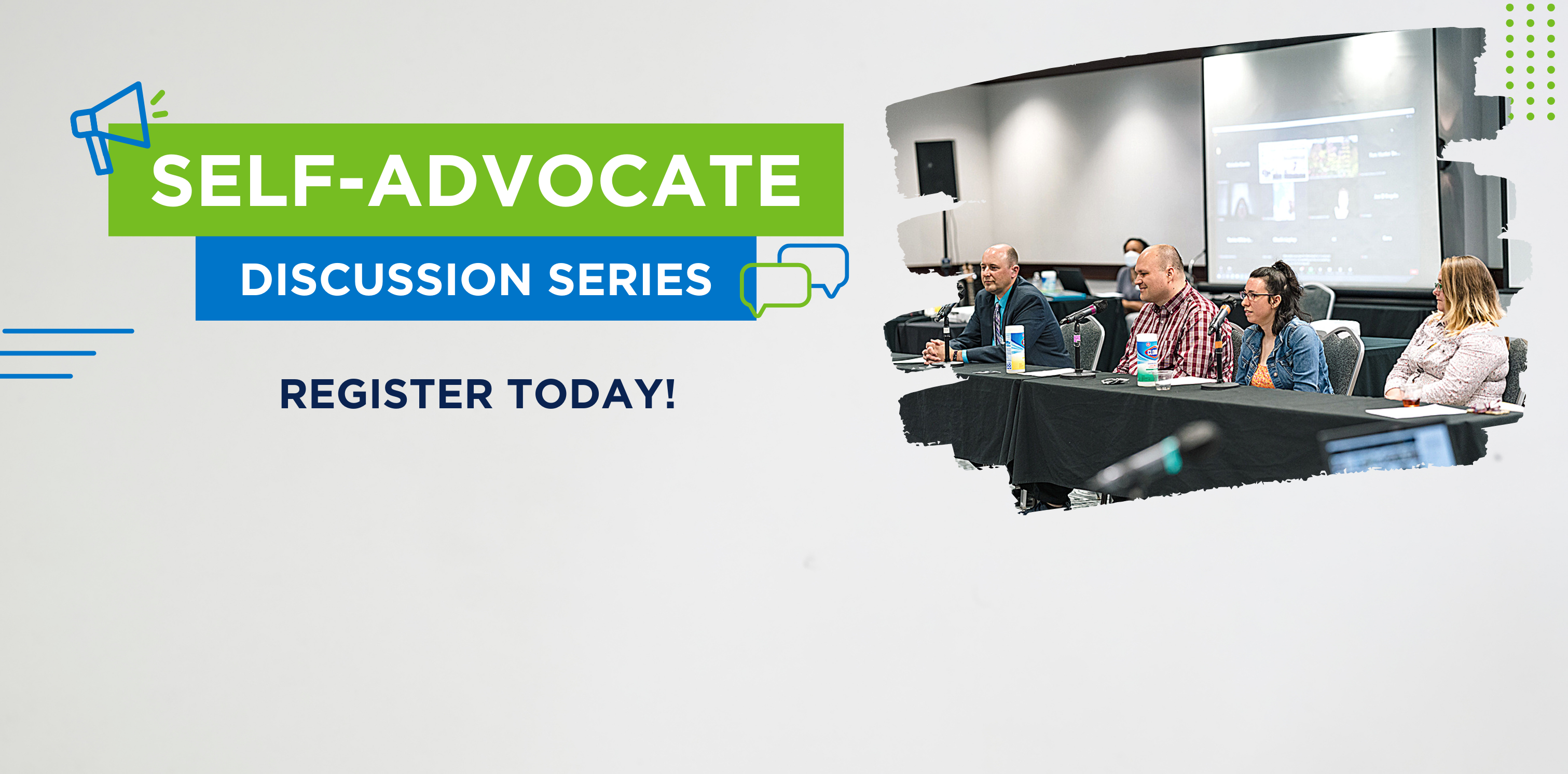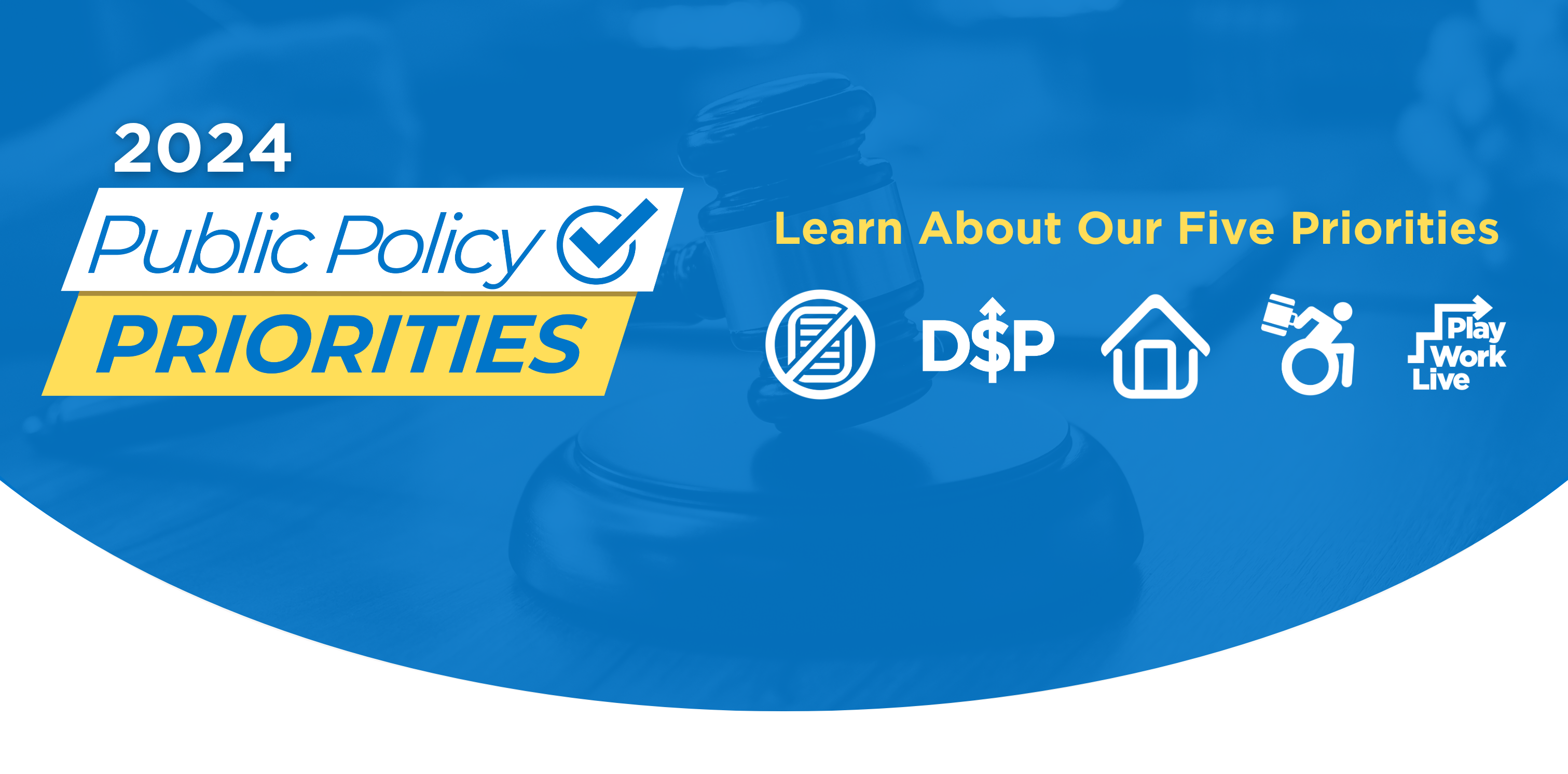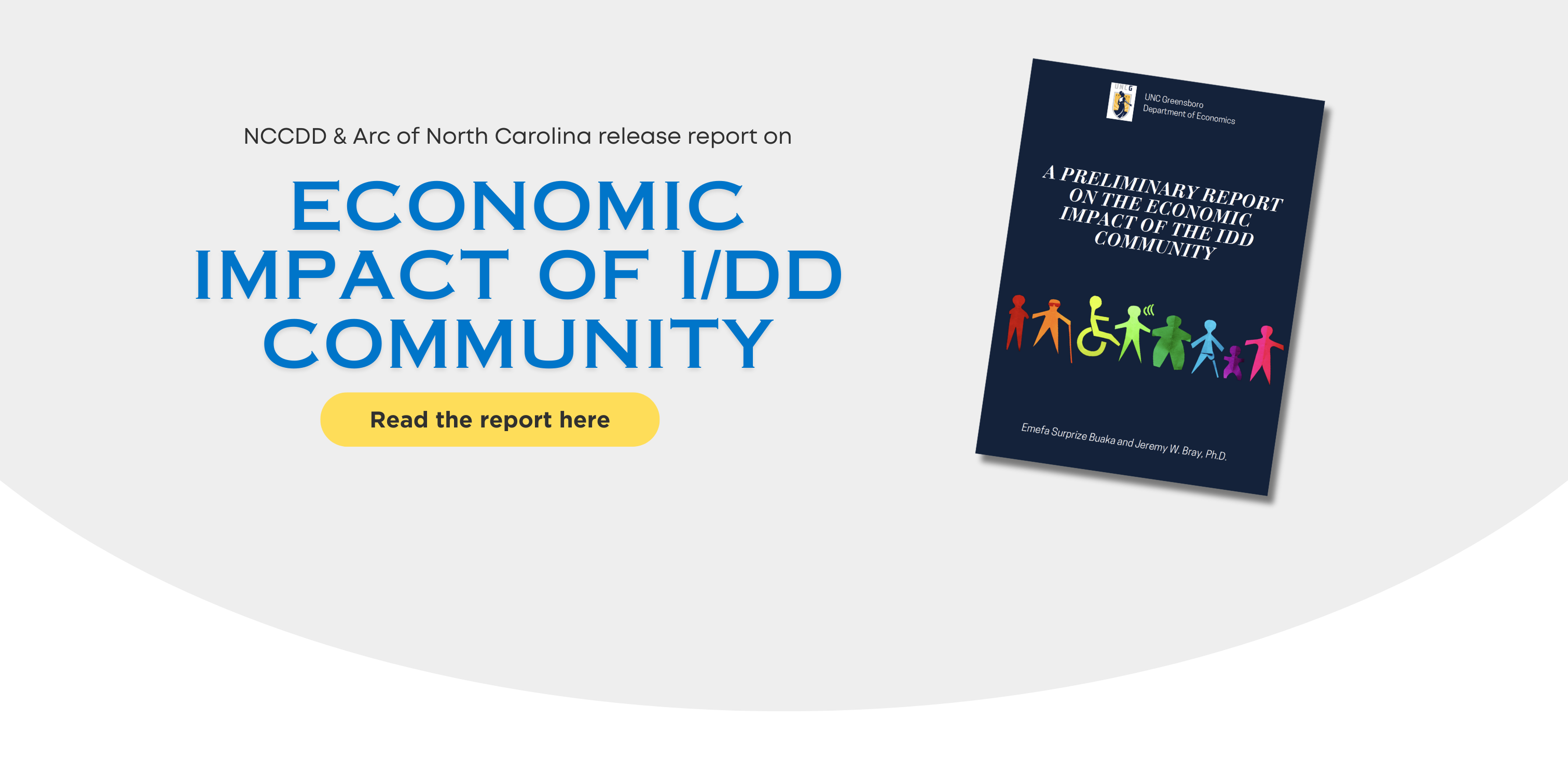Inroads to Employment
The NC Council on Developmental Disabilities has a long history of exploring and supporting efforts to expand the range of employment choices for individuals with intellectual and other developmental disabilities (I/DD). This initiative aims to expand on, and create new paid apprenticeships for individuals with I/DD, leading to integrated, competitive employment and career opportunities.
Why is NCCDD funding this initiative?
Employment disparities have long been researched, tracked, and documented between individuals living with disabilities and individuals living without disabilities. Per the United States Bureau of Labor Statistics, people living with significant disabilities continue to report high unemployment rates. Specifically, the number of workers living with significant disabilities in the labor force is about one-third of the number of workers living without disabilities. In 2011, The Arc conducted an online national Family and Individual Needs for Disability Supports (FINDS) Survey.[1] Data gathered in that survey showed 15% of the 5,000 respondents reported their family member living with an intellectual and other developmental disability were employed.
As highlighted in the NCCDD Five-Year Plan, such national disparities in employment accurately reflect the disparities in employment observed in North Carolina among persons living with and without disabilities.[2] Similarly, data noted in the NCCDD Five-Year Plan, and in an October 2015 report prepared by Butterworth and Migliore, demonstrate that young people living with intellectual and other developmental disabilities have employment rates that are even more disconcerting. Butterworth and Migliore’s report summarizes data from two groups. Their summary report data shows that in 2013 the number of individuals ages 16-21, employed, living without a disability in North Carolina was 38%, compared to those living with a disability at 17%; and for individuals living with a cognitive disability, their rate was even lower at 15%. For those ages 22-30 in North Carolina, the employment rate for individuals living without a disability was 74%, compared to individuals in that same age range living with a disability at 41%; and for those living with a cognitive disability, their employment rate was even lower at 32%.[3]
Such disparities remain consistent and despite various efforts, there is a struggle to approach parity. In some states, the disparity is nearly double.[4] This RFA will expand innovative approaches for on-the-job training, as well as community, service provider, and business partnerships to address the systemic barriers to employment people living with I/DD confront when seeking employment. This RFA will target employment for individuals 16 to 21, and individuals 22 to 30 living in North Carolina. This RFA will also focus on the transition to work after graduation.
[1] The Arc of the US (2011). Still in the Shadows with Their Future Uncertain: A Report on Family and Individual Needs for Disability Supports (FINDS). Retrieved from The Arc of the US Website: http://www.thearc.org/FINDS
[2] NC Council on Developmental Disabilities (2016). Five Year State Plan 2017 – 2021. https://nccdd.org/images/article/Forms-docs-brochures/2015/Five_Year_Plan/Report-2016-08-16-1634R.pdf
[3] Butterworth J. and Migliore A. (2015). Trends in Employment Outcomes of Young Adults with Intellectual and Developmental Disabilities, 2006-2013. Special Report published by Institute for Community Inclusion at UMass Boston. Retrieved from https://www.statedata.info/sites/statedata.info/files/files/Transition_Report_2015.pdf
[4] Butterworth J. and Migliore A. (2015).
- The Office of Disability Employment Policy indicates the employment rate for youth with disabilities is significantly less than youth without disabilities (60 - 70 % less).
- Work-based learning promotes problem solving and adult thinking.
- Young people with disabilities have limited access to many of the venues for teens such as sports, clubs or after school jobs that build employment skills.
- This initiative supports NCCDD's Goal 1 of the current Five Year Plan: Increase financial security through asset development for individuals with I/DD.
What are the major goals and objectives?
- Establish three registered apprenticeships.
- Expand Workforce options for youth ages 14-21 through Pre-Employment Transition Services through collaborative efforts between two local public school systems and North Carolina Division of Vocational Rehabilitation Services.
- Improve employment prospects and job search skills for post-secondary students living with I/DD through career mentorship program and the development of stronger linkages between career services and disability services offices.
- Demonstrate the impact of post-secondary career mentoring programs that connect local business professionals with current post-secondary students living with I/DD.
What has taken place since the start of the program? (Activities)
- Facilitated two Pre-ETS programs, one in 2018 with Cleveland County Schools (CCS) and another with Gaston County Schools (GCS) designed to serve three schools with plans to serve about 40 students, which was on track to begin January 2020.
- Registered apprenticeship sites established at Your Local Greens in Burlington, NC and Well-Spring Retirement Center in Greensboro, NC.
- Established business mentoring program for UNC-Charlotte students living with disabilities to assist in expanding employment opportunities for university students with disabilities.
- Continued recruitment of business leaders to serve as mentors.
What COVID-19 Related Adjustments have been made?
- Contractor is partnering with the national Partnership to Advance Youth Apprenticeships (PAYA) and the NC Justice Center. This resulted in strategies and resources specific to youth living with disabilities being included in tool kits used to expand the availability of apprenticeships to youth with disabilities.
- Development of a small pilot with Gaston County Schools to explore the feasibility of virtual Pre-ETS courses in compliance with COVID-19 restrictions
- Development of a guidebook which will highlight successes from Pre-COVID-19 registered apprenticeship sites at Your Local Greens in Burlington, NC and Well-Spring Retirement Center in Greensboro, NC
What has been achieved to date?
- Ongoing development of registered apprenticeships in business, technology, and healthcare career areas
- Framework being established for apprenticeship in agrotechnology through partnership with hydroponic agribusiness, Your Backyard Greens
- Pre-Employment Transition Services Contract with Chapel Hill Carrboro Schools began January 2018.
- Technical assistance provided to Cleveland County Schools for their submission of Pre-ETS proposal to NCVR completed June 2018.
How can I get involved?
Contact Travis Williams, Systems Change Manager, [email protected] for more information on becoming involved in one or more of the above elements.
Who can I contact for questions?
Employment Services Coordinator: Patricia K. Keul, [email protected]
NCCDD: Travis Williams, Systems Change Manager, [email protected]
Additional Resources
Click here to download a one pager of this initiative.
Recent Posts
Message from the Executive Director Public Policy Update (as of…




